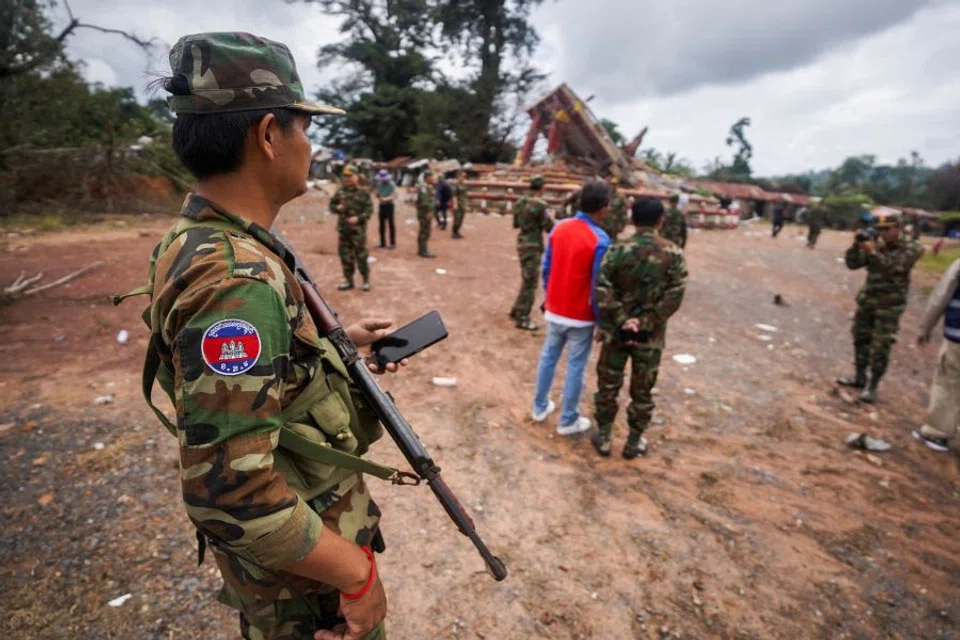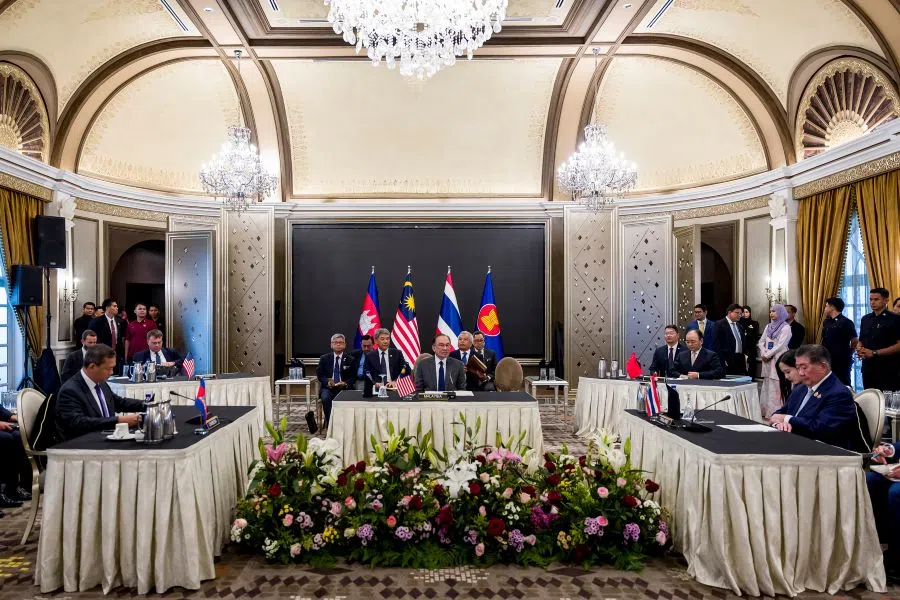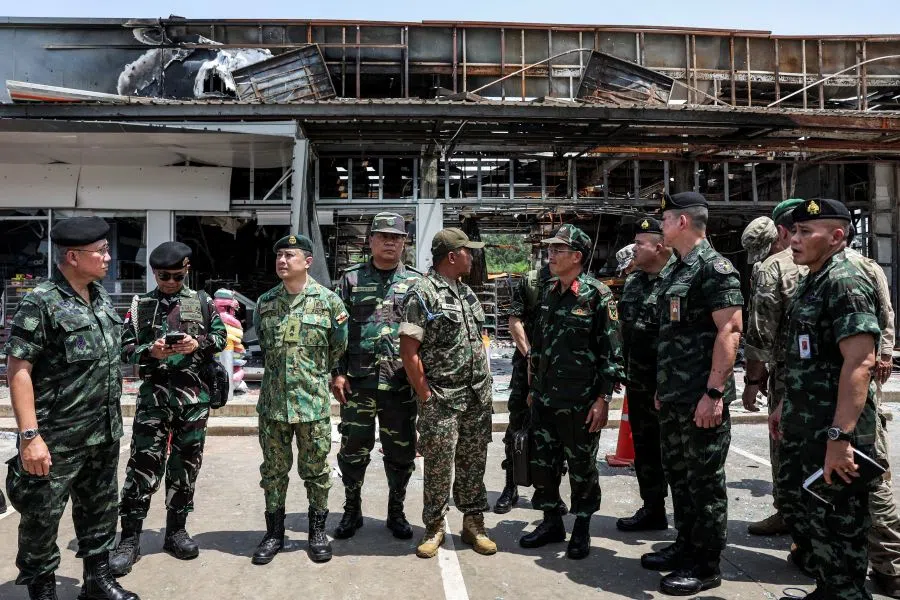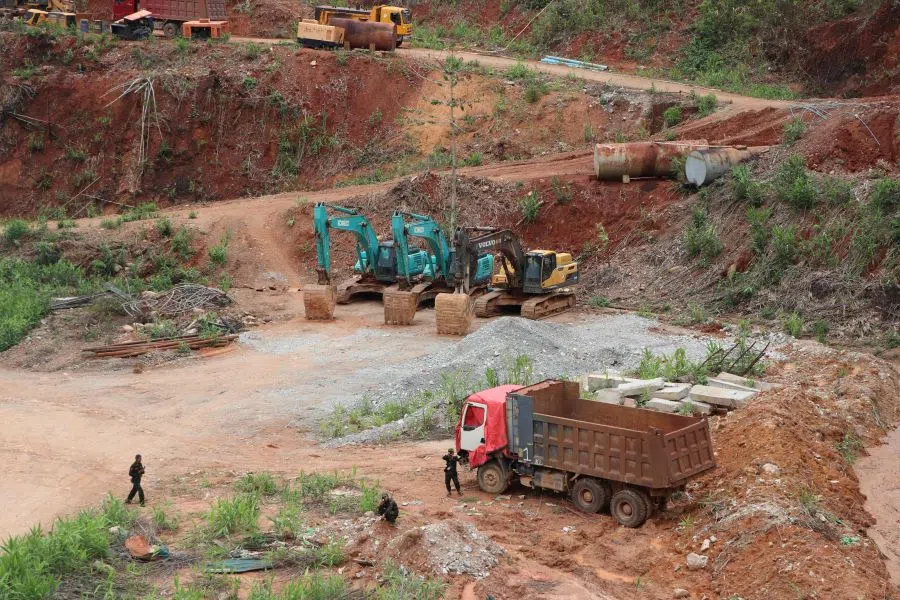Did Trump upstage China in the Cambodia–Thailand truce?
The Cambodia-Thailand truce has highlighted the limits of China’s diplomacy as Beijing’s action proved less incisive than that of the US, despite Washington’s declining influence on its traditional Thai ally. Italian commentator Emanuele Scimia gives his take on the situation.

US President Donald Trump’s diplomatic blitz to end the five days of intense border clashes between Thailand and Cambodia has resulted in peace talks in Malaysia and a ceasefire between the warring sides. Even if the truce remains fragile, it has dealt a notable blow to China’s credibility as the resident power in East and Southeast Asia.
Limits of China’s diplomacy
The ceasefire agreement reflects an unusual convergence of interest between Washington and Beijing, but the armed confrontation between Bangkok and Phnom Penh has actually revealed the limits of China’s diplomacy.
After the two opponents concluded the deal, Cambodian Prime Minister Hun Manet praised Trump’s “decisive mediation” and China’s constructive participation.
Hun Manet’s words unequivocally suggested that Beijing only played an ancillary role, and Trump had the upper hand.
On the eve of the ceasefire talks, the Cambodian leader had pointed out that Trump had initiated the negotiation process, and that the discussions had been “co-organised” by the US, with China’s participation. Hun Manet’s words unequivocally suggested that Beijing only played an ancillary role, and Trump had the upper hand. This is even more striking given that Cambodia is a very close partner of Beijing, while Thailand is a treaty ally of the US.
In the context of US-China global power competition, Beijing has always lashed out at the activities of “forces outside the region”, an implicit attack on Washington’s policies and presence in East and Southeast Asia. Now Trump’s incursion has questioned the ability of Chinese diplomacy to ensure stability in what should be Beijing’s geopolitical backyard.

Keeping in check neighbours and their reciprocal relations should be an outstanding feature of an aspiring regional superpower like China, despite Beijing formally asserting a policy of non-interference in the affairs of other states.
It is not by chance that, as guns fired along the Thai-Cambodian frontier, Chinese authorities emphasised that they were working to maintain regional stability.
Failing to rein in another conflict at its doorstep would further put in question China’s diplomatic prowess after, for instance, its evident inability to contribute to stopping the civil unrest in Myanmar.
Critical minerals at stake
Beijing clearly supports Myanmar’s coup generals in their fight against opposition forces, including a number of armed ethnic militias that have increasingly gained ground in the border regions. However, the continuation of the war is damaging China’s core interests.
The rare earths issue is central in this sense as Kachin Independence Army (KIA) rebels, who fight Myanmar’s military junta, have reportedly disrupted China’s critical minerals trade along the shared frontier with Myanmar’s Kachin state. KIA forces control areas where most of Myanmar’s rare earth mines are located — such minerals are essential to power tech innovation.
The US president warned Thailand and Cambodia that trade negotiations with them on tariffs would not progress if fighting continued. The threat was persuasive as the US is the largest export market for Bangkok and Phnom Penh.

China has always had cards to play in Myanmar, given its connections with both the ruling junta and armed formations like the KIA. The same goes for the Thai-Cambodian rift. Beijing has strong military and economic ties with Cambodia, and is a solid economic partner of Thailand, so it should have been in a good position to mediate or facilitate a diplomatic solution to their conflict.
On 25 July, Chinese Foreign Minister Wang Yi stated that China had backed ASEAN’s efforts to broker the cessation of hostilities. Three days later, the Chinese side further emphasised its commitment to promoting the maintenance of the ceasefire agreed upon in Malaysia.
But Beijing’s action proved less incisive than that of the US, despite Washington’s declining influence on its traditional Thai ally.
Instead the Trump administration demonstrated that it had the leverage to nudge the belligerents to the diplomatic table. The US president warned Thailand and Cambodia that trade negotiations with them on tariffs would not progress if fighting continued. The threat was persuasive as the US is the largest export market for Bangkok and Phnom Penh.
Maintaining influence
It is possible that the US is trying to regain ground in Southeast Asia to China’s detriment. In the end, there are other signals of a renovated US activism in the area.
The US government has recently lifted some sanctions against Myanmar’s individuals and companies linked to the Southeast Asian country’s ruling junta. Washington could be attempting to drive a wedge between Myanmar’s generals and Beijing, as Trump aims to play a role in the rare earths-rich Myanmar, where China has so far had a leading position.
In this context, Trump may dream of pulling off a diplomatic coup with the Thailand-Cambodia conflict, weakening China’s power status.
Washington has become part of a diplomatic dynamic that in itself dents China’s regional influence, along with its bid to be an indispensable power in Southeast Asia and Asia’s preeminent power.

If he were to reach this goal, he would replicate the successful mediation that recently led to a peace agreement between Rwanda and the mineral-rich Democratic Republic of the Congo (DRC) after years of fighting. Trump’s brokered deal was, in essence, a slap in the face of China, which has vast mineral interests in the region and has outcompeted the West in Africa over the past two decades.
Just like for the Rwanda-DRC dispute, the Trump government has been able to insert the US into a geopolitical game that did not favour it, but China. And even if the dialogue between Thailand and Cambodia were to derail, the Trump administration would in any case achieve a tangible result, because Washington has become part of a diplomatic dynamic that in itself dents China’s regional influence, along with its bid to be an indispensable power in Southeast Asia and Asia’s preeminent power.
For a rising rival to dislodge an incumbent superpower is no mean feat, and China is experiencing it firsthand.



![[Big read] When the Arctic opens, what happens to Singapore?](https://cassette.sphdigital.com.sg/image/thinkchina/da65edebca34645c711c55e83e9877109b3c53847ebb1305573974651df1d13a)
![[Video] George Yeo: America’s deep pain — and why China won’t colonise](https://cassette.sphdigital.com.sg/image/thinkchina/15083e45d96c12390bdea6af2daf19fd9fcd875aa44a0f92796f34e3dad561cc)
